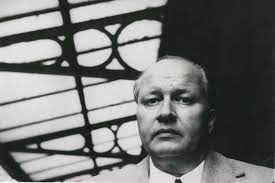
Story. Cavemen loved them, apparently, as do the so-called civilized types we call ourselves today. Tell me a good story, and I’m your captive till the happily ever after. Words to live by. Especially if your name is Sheherazade and your pretty life depends on it.
The last entry from my reading of Gregory Orr’s Poetry as Survival has to do with story. He quotes Aristotle, who famously said, “Men reveal themselves in deeds and acts.” (I love it when Ari gives lessons on show vs. tell.)
And if you sample poems in the various journals you submit poetry to, you will find that certain editors lean heavily toward narrative poetry. Narrative threads weave their way through lyric poetry, too. They are not mutually exclusive. I’ll yield the floor to Orr:
“Story is not simply a narrative of chronological events. Story selects and arranges (or rearranges) details and events and gestures for their symbolic significance. In prose narrative, ‘more is more’ because the goal is often to establish the complex richness and variety of the world of experience. In lyric story, ‘less is more.’ Everything that does not add to the intended dramatization is stripped away, and meaning is compressed into action and detail that reveal significance. Only that part of the world that heightens the dramatic focus is kept. Thus Aristotle in his Poetics says that if some part of a poem is removed and someone reading the poem doesn’t notice a gap or absence, then that part was never a genuine part of the poem after all.”
I love that last bit about a reader not noticing missing lines in a poem. Trouble is, the reader has to be someone other than yourself. As the poet, you often cannot see the extraneous from the essential. Every word is your baby, after all. Your mother hen instincts secretly kick in.
Aristotle’s observation also reveals the irony in assuming the job of the novelist is more arduous than the job of the poet. Yes, the novelist has his English Channel of words to swim across, but the currents and the vastness of the body itself allow for error, for digression, for the ego to occasionally break loose and pontificate. The poet, on the other hand, must work from the recent storm’s puddle on the sidewalk. That’s it. Check out the reflection while it’s there, then make do and make it work.
So I ask you, which is more difficult: “more is more” or “less is more”? If you chose the former, you’re likely the person who would select the biggest wrapped box in a line-up of various-sized gifts, too, thinking surely that size is everything. In America, we would say, “How American.” I’m not sure what they would say in other countries, but they’d say something (while shaking their cosmopolitan heads).
Back to Orr:
“Aristotle also locates the heart of story in conflict. In lyric poetry, such conflict needn’t be anything melodramatic. Merely introducing two pronouns into the opening line of a poem creates tension essential to story: ‘I saw you in the diner…’ There is a subtle, unresolved tension between the ‘I’ and the ‘you’ that seeks to be developed and resolved. You can see how subtle but real that tension is if you substitute a unitary pronoun: ‘We went to the diner.’ The reader may still be curious about what will happen next, may even curious about who the ‘we’ is, but the story tension created by the I/you has disappeared. It is this tension or conflict that is at the heart of a story, providing story with dramatic focus.
“Unlike narrative, which can have numerous characters, story in the personal lyric will have only two or three characters in order to establish and maintain dramatic focus and thereby communicate the story of the self. Here’s a personal lyric by Theodore Roethke that structures itself around story:
My Papa’s Waltz
by Theodore Roethke
The whiskey on your breath
Could make a small boy dizzy;
But I hung on like death:
Such waltzing was not easy.
We romped until the pans
Slid from the kitchen shelf;
My mother’s countenance
Could not unfrown itself.
The hand that held my wrist
Was battered on one knuckle;
At every step you missed
My right ear scraped a buckle.
You beat time on my head
With a palm caked hard by dirt,
Then waltzed me off to bed
Still clinging to your shirt.
Interesting, isn’t it, how a poem like Roethke’s — one that we’ve read a million times — can be used as an example of narrative poetry. It’s so short, I never thought of it that way.
But the truth is, narrative poetry can out-flash the flashiest of fiction. And if it looks easy, look again. Then get to work, as that’s the only way your story will reach the Promised Land (which looks a lot like the word “published” to me).